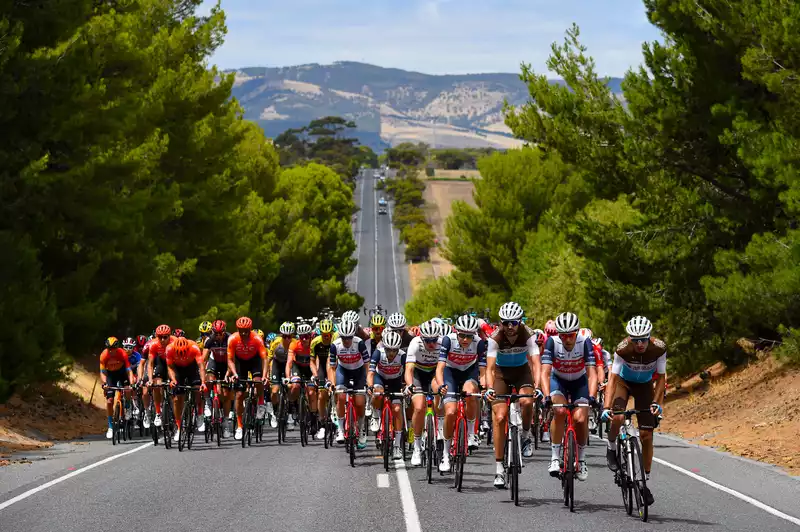While professional cycling teams are eagerly awaiting the revised UCI calendar for 2020, which will allow them to start again with the Strade Bianche on August 1, many team bosses stressed to the French press how vital the Tour de France is to their survival.
The French sports newspaper L'Equipe spoke to managers of past and present WorldTour teams, and they were generally of the same opinion. Even the survival of the sport's biggest teams is precarious, and that the Tour de France, scheduled for August 29-September 20, remains king in attracting the interest of current and potential sponsors.
While the topic of teams receiving a portion of the TV rights is a recurring theme regarding their viability, those on the ground are not convinced that it will make much difference. [Arcair Samsic team manager Emmanuel Hubert told L'Equipe on Tuesday. 'For us in cycling, we may be able to afford new riders, new Pullmans [team buses]. You may forget that the Tour de France offers 70% of its visibility to sponsors. It's give and take. Without the Tour, cycling would be dead."
Julien Goupil, media director of ASO, the Tour de France organizer, added: "We are very proud of the Tour de France.
"We are light years away from soccer and Formula 1," he continued, agreeing with Hubert about the size of the money from TV rights, with L'Equipe magazine stating that only the three Grand Tours, the Monuments of Cycling (five major one-day races), and the World Championships generate significant amounts generated by the three Grand Tours, the Monuments of Cycling (the five major one-day races), and the World Championships.
Furthermore, Hubert pointed out that cycling teams operate in a completely different way than the standard business model.
"The instability of our sport," he explained, "is basically due to the very short duration of sponsorship contracts.
"What is different is that we try to optimize the performance of the team together with the rider, whereas a company (not a cycling team) thinks about reinvestment. For us, success is when the team does well, not because we have 5 million euros at the end of the season.
"Sponsors can break a deal overnight," noted Marc Biver, former director of the Swiss division of sports management company IMG and later general manager of Kazakhstan's world tour team Astana.
"Team Sky, now Ineos, has caused wage inflation by offering a second-in-command, who would be a leader in any other team, for the price of gold," Biver said.
These days, larger teams can have as many as 70 employees, and L'Equipe magazine estimates that 75 percent of most teams' budgets are spent on salaries for team staff as well as players.
As a result of the lack of racing due to the coronavirus crisis, many WorldTour teams, including Mitchelton Scott, Lotto Soudal, Astana, and Bahrain McLaren, have temporarily reduced the salaries of their riders and staff, and some teams have temporarily laid off staff Some teams temporarily laid off staff. Meanwhile, the CCC team, which includes Olympic road race champion Greg Van Avermaet and former European road race champion Matteo Trentin, will lose its main sponsor at the end of the season, according to many sources.
"In 15 years, my budget has increased by 50% and travel expenses have increased by the same," said Dečuninck-Quick Step boss Patrick Lefevere.
"Even the site of my service track (team headquarters) is rented land. I only own three Pullmans and a workshop truck."
Most of the team's cars and bikes are included in the sponsorship deal.
"The Tour de France's profits are offset by the costs incurred in non-profitable races such as Flèche Wallonne and Liège-Bastogne-Liège," Lefebvre added.
"This is not a time for conflict, and it is not a coronavirus that will change the system. It's the UCI, the teams, and the organizers; it's the UCI, the teams, and the organizers."
.

Comments